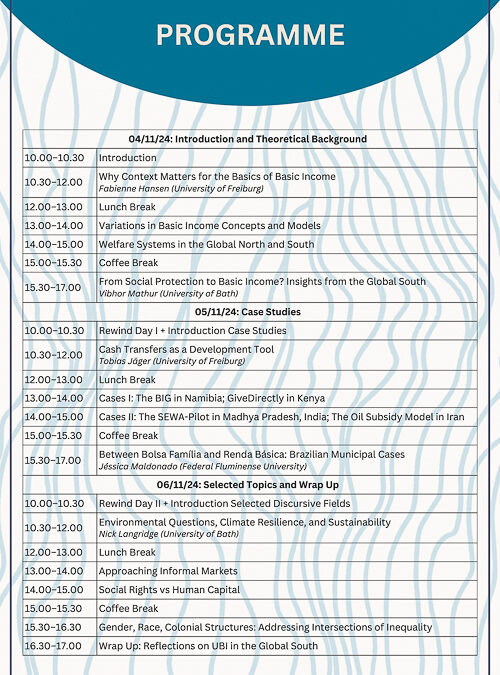A universal basic income (UBI) is a periodic cash payment unconditionally delivered to all individuals, without means testing or work requirements. Today, a broad variety of ideas surrounding the topic of UBI circulate globally, leading to debates, suggestions, and experimentation, but not to the implementation of what is seen as a “full UBI.” Instead, basic income proposals differ among many dimensions, goals, and localities. Since the early 2000s, a curious trend can be observed in the Global South in this context: With the rise of conditional cash transfers (CCTs), the focus on conditionalities and targeting as development and poverty reduction tools has significantly influenced possible dealings with UBI ideas. But UBI scholars and advocates have influenced the CCT discourse likewise, for example, through the BIG grant in Namibia, the initiative of GiveDirectly in Kenya, the UBI pilot in Madhya Pradesh, India, or the intermingling of UBI advocacy with the social protection program Bolsa Familia in Brazil.
This winter school explores the multifaceted topic of UBI in the context of the Global South, providing an overview of the specific contexts, challenges, and outcomes of UBI pilots and experiments, as well as related and inspired policies and initiatives. It will explore the political and ethical considerations surrounding the debates on UBI in countries of the Global South, including the topics of social rights, equity, and the role of government intervention. Through a variety of case studies, it aims to create a critical understanding of the potential and limitations of UBI as a tool for social and economic transformation in so-called ‘developing countries.’
Attendence is free and can participation is welcome in person and online. Please register here.


